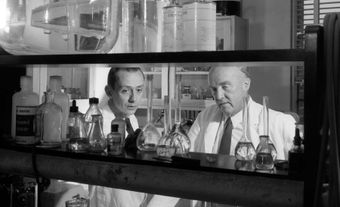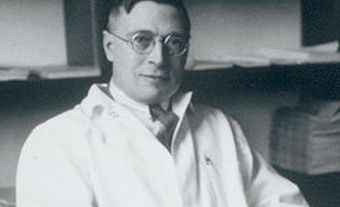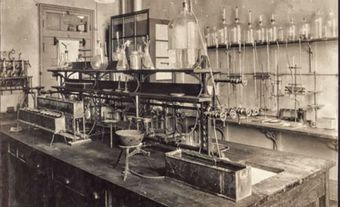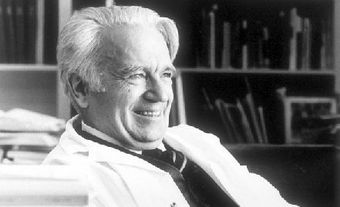John James Rickard Macleod, physiologist, co-discoverer of insulin (born 6 September 1876 in Cluny, Scotland; died 16 March 1935 in Aberdeen, Scotland). John Macleod was a renowned physiologist and expert in carbohydrate metabolism, who is perhaps best known for his role in the discovery of insulin, a treatment for diabetes mellitus.
Education and Early Career
Trained at the universities of Aberdeen and Leipzig and the London Hospital Medical College, John James Rickard Macleod immigrated to America in 1903 to teach at Western Reserve University, Cleveland. He gradually developed an international reputation as an expert in carbohydrate metabolism and general physiology, and in 1918 was appointed professor of physiology at the University of Toronto.
Discovery of Insulin
In the spring of 1921 Macleod gave Frederick Grant Banting laboratory space, equipment, advice and one of his student assistants (Charles Herbert Best) to investigate the hypothetical internal secretion of the pancreas. (See also Diabetes.)
Contrary to Banting's and Best's later accounts, Macleod was an active, essential supervisor of a research effort that, by the spring of 1922, had resulted in the discovery of insulin. His elaboration of the early crude results, his handling of the clinical trials, and his highly professional presentations of the research particularly impressed the Swedish investigators who rightly recommended that he share the 1923 Nobel Prize for medicine or physiology with Banting (see also Nobel Prizes in Canada).
Legacy
Macleod's contribution to physiology and Canadian science was not properly recognized in Toronto or Canada for many decades. He left Canada in 1928 to become regius professor of physiology at the University of Aberdeen, in Scotland, where he died in 1935.
Honours and Awards
- Nobel Prize in Physiology or Medicine, Nobel Assembly (1923)
- Inductee, Canada’s Walk of Fame (2021)

 Share on Facebook
Share on Facebook Share on X
Share on X Share by Email
Share by Email Share on Google Classroom
Share on Google Classroom






